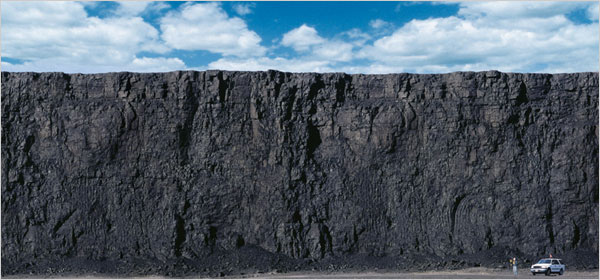Update: Here is the Epstein paper:”Full cost accounting for the life cycle of coal.” [PDF]
Dr. Paul Epstein from the Center for Health and the Global Environment at Harvard’s Medical School has written an article set for publication this month in the Annals of the New York Academy of Sciences quantifying the true costs of coal in terms of economic, health and environmental impacts.
Dr. Epstein’s study details how each stage of coal’s life cycle (extraction, transportation, processing, and combustion) has enormous costs, all of which are directly borne by the public. Notably, the report estimates some $74.6 billion a year in public health costs for Appalachian communities, mainly from increasing healthcare burdens, injury and death.
Beyond the direct health damage coal extraction and burning has on communities, the American public is paying $187.5 billion due to air pollutants, $29.3 billion for mercury poisoning, and anywhere between $61.7 and $205.8 billion for global warming emissions.
Dr. Epstein is unequivocal when remarking that the life cycle impacts from overreliance on coal affect our lifestyles, transition to alternative energies and raise the price of electricity, stating that:
The public is unfairly paying for the impacts of coal use…Accounting for these ‘hidden costs’ doubles to triples the price of electricity from coal per kWh, making wind, solar, and other renewable very economically competitive. Policymakers need to evaluate current energy options with these types of impacts in mind. Our reliance on fossil fuels is proving costly for society, negatively impacting our wallets and our quality of life.
Our comprehensive review finds that the best estimate for the total economically quantifiable costs, based on a conservative weighting of many of the study findings, amount to some $345.3 billion, adding close to 17.8¢/kWh of electricity generated from coal. The low estimate is $175 billion, or over 9¢/kWh, while the true monetizable costs could be as much as the upper bounds of $523.3 billion, adding close to 26.89¢/kWh. These and the more difficult to quantify externalities are borne by the general public.
Climate Progress provides further support for Dr. Epstein’s findings, citing a similar study from the National Research Council in 2009 which found that US addiction to fossil fuels costs the country nearly $120 billion a year – without accounting for mercury or carbon pollution. Specifically that study states that in 2005 burning coal led to “total annual external damages from sulfur dioxide, nitrogen oxides, and particulate matter” and costs “were about $62 billion,” averaging electricity rate hikes of approximately “3.2 cents for every kilowatt-hour (kwh) of energy produced.”
It is also interesting that Dr. Epstein’s report clarifies that carbon capture and storage (CCS) is definitely not the climate change solution many claim it is:
Our analysis also suggests that the proposed measure to address one of the emissions—CO2, via CCS—is costly and carries numerous health and environmental risks, which would be multiplied if CCS were deployed on a wide scale. The combination of new technologies and the “energy penalty” will, conservatively, almost double the costs to operate the utility plants. In addition, questions about the reserves of economically recoverable coal in the United States carry implications for future investments into coal-related infrastructure.
Public policies, including the Clean Air Act and New Source Performance Review, are in place to help control these externalities; however, the actual impacts and damages remain substantial. These costs must be accounted for in formulating public policies and for guiding private sector practices, including project financing and insurance underwriting of coal-fired plants with and without CCS.
This study provides further proof of the need for an immediate transition to a more sustainable future, and leaving dirty coal behind is clearly one of the best ways for the U.S. to begin that journey.
A full copy of Dr. Epstein’s forthcoming study is available upon request from Greenpeace, and Coal Tatoo has posted a summary [PDF] as well.
Subscribe to our newsletter
Stay up to date with DeSmog news and alerts






